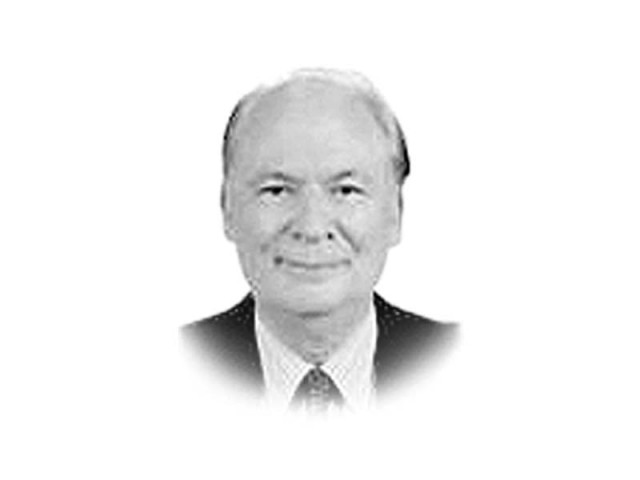Mohammed Ali Siddiqui: a tribute
Throughout his career, Mohammed Ali Siddiqui has displayed an insight that is both compelling and moving

anwer.mooraj@tribune.com.pk
Ghazi Salahuddin did, I understand, throw some light on the character of the author who had been his colleague for many years, and in the process, and as a result of effervescent whimsy, got a chance to spread a little light and wit which evoked a few laughs. His reference to the author’s honesty and sincerity is something that I share. In the many years that I knew Mr Siddiqui, I was always humbled by his humility, integrity and candour. He was always upright and helpful. He was the person who coaxed me into writing a light weekly column and subsequently, Mr M A Majid encouraged me to contribute a regular political column on the editorial page which appeared every Monday, for four years.
Mr Kamal Azfar, a former governor of Sindh and a leading barrister, touched on the subject of fascism and pointed to the acerbic rule of the dictator Ziaul Haq who played his cards with a suffocating, sparse, buttoned-down power, and cast an indigo shadow over Pakistani politics when the country became an unfortunate hostage to misfortune. General Zia’s rule was like watching a firework display — one rocket being let off at a time. Javed Jabbar dilated on the style used in the book which he felt leaned towards the approach employed by James Joyce in his masterpiece Ulysses, which, to this day, has remained my favourite novel. Others also spoke, including Zubeida Mustafa, who has highlighted, better than anybody else that I know, the sorry plight of education in this country.
Mr Siddiqui, as his granddaughter pointed out, has, during his career, written over 3,000 editorials. This is a staggering figure. The subjects covered a wide spectrum. Not only does it demonstrate versatility but also tenacity. Throughout his career, he has displayed an insight that is both compelling and moving. The tiniest intonation of grief or anger was snatched back as soon as it was offered. Like any responsible journalist he aimed at objectivity, and kept personal feelings to himself which wasn’t always easy, especially when the majority of serious journalists in Pakistan with rare exceptions have been left-leaning while their employers have displayed right-wing tendencies.
The author’s fierce admiration for a former editor of a publication, Mr Ahmad Ali Khan, is shared by many journalists in Karachi and Lahore. A report in a daily newspaper stated that it was no coincidence that Mr Siddiqui’s memoirs happened to be launched on the same day as the death anniversary of Mr Ahmad Ali Khan, who was a truly remarkable person. One of Mr Khan’s great achievements was the way he held the publication together in the uncertain days of 1971, when corporations had been nationalised and advertising was scarce and the management couldn’t print more than six pages. Noreen Mujahid, daughter of Shariful Mujahid, who could not attend or chair the function as he had had an accident, echoed her father when she stated Mr Siddiqui’s memoirs were more than just a personal journal. It was a collection of his impressions of the country which spread over six decades and the many changes that had and were taking place.
Published in The Express Tribune, March 20th, 2016.
Like Opinion & Editorial on Facebook, follow @ETOpEd on Twitter to receive all updates on all our daily pieces.













COMMENTS
Comments are moderated and generally will be posted if they are on-topic and not abusive.
For more information, please see our Comments FAQ